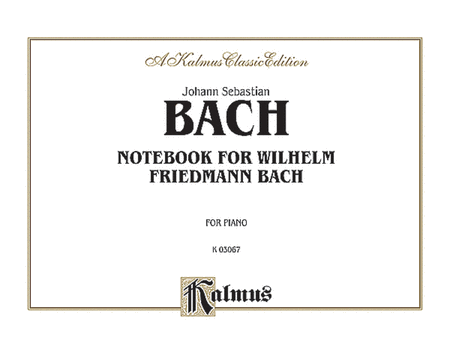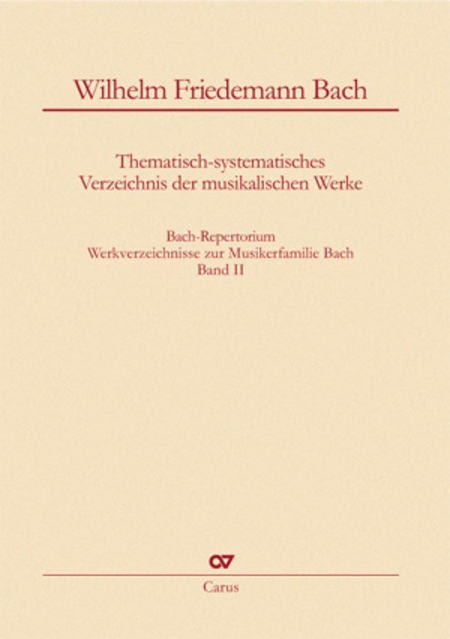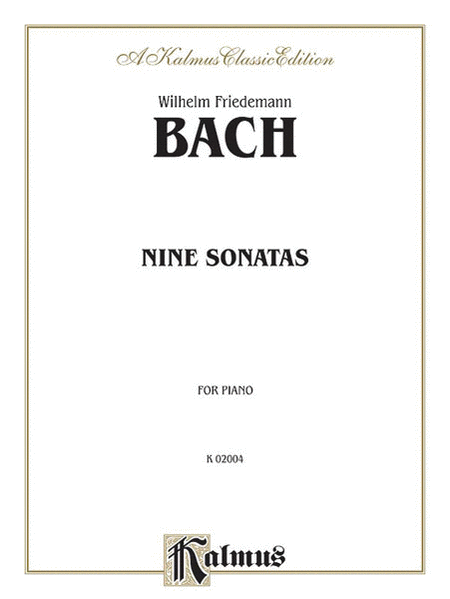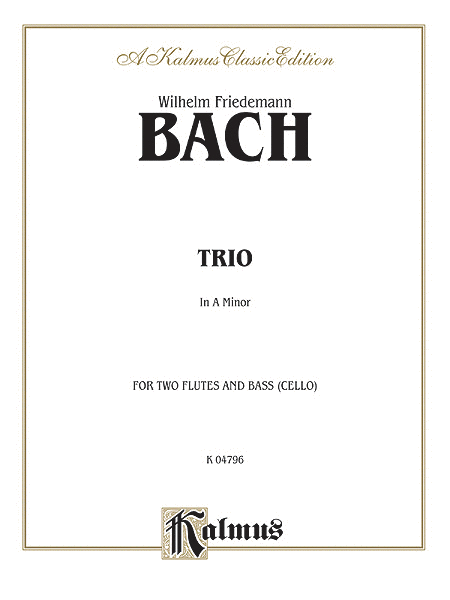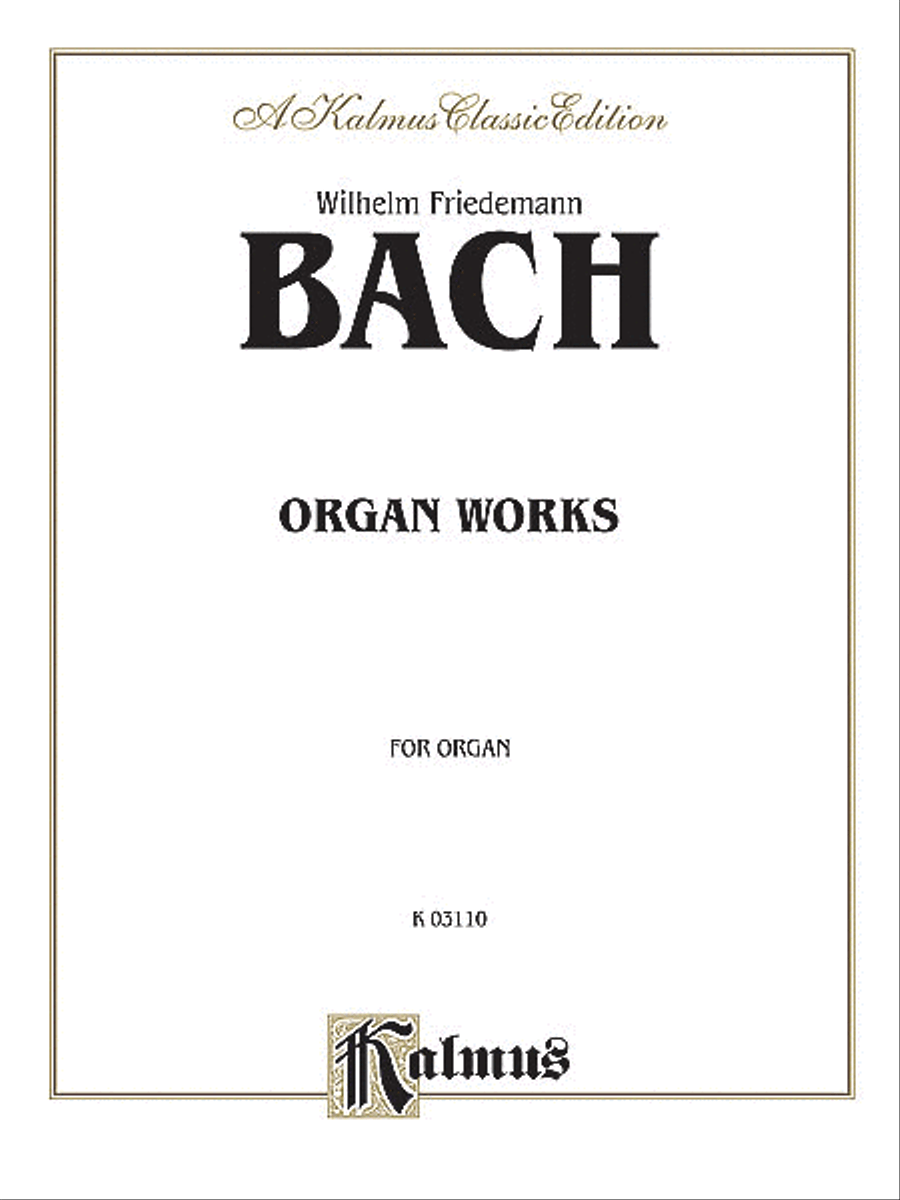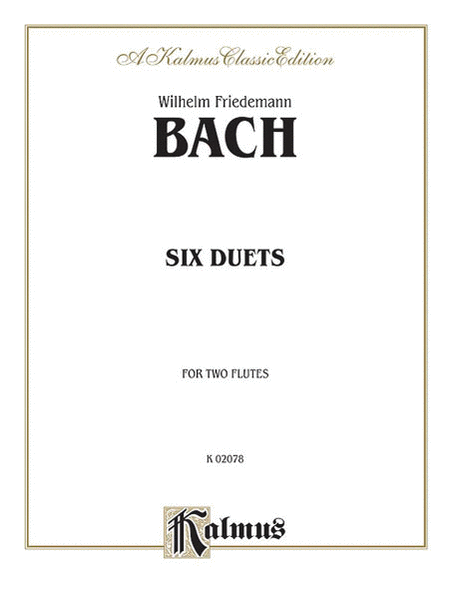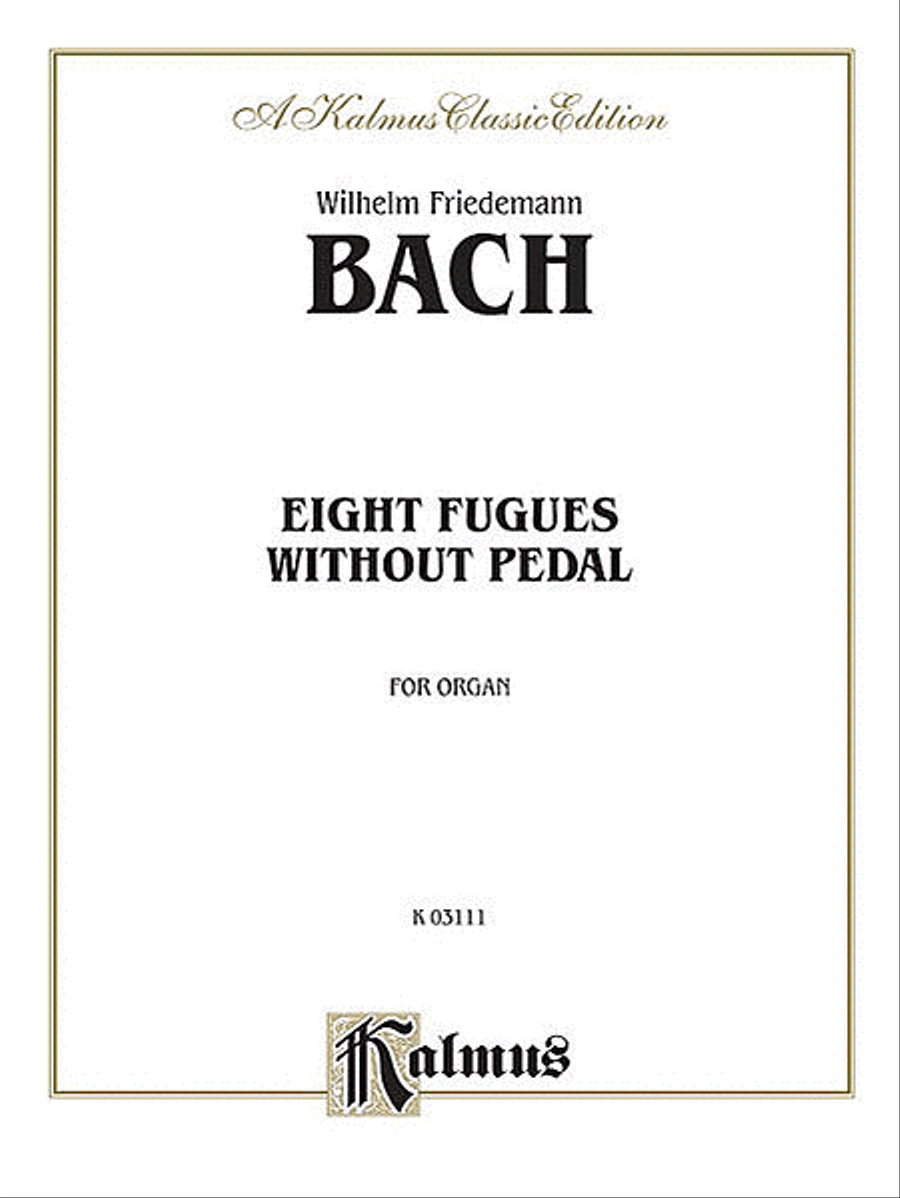Wilhelm Friedemann Bach (1710 - 1784)
 Allemagne
Allemagne
Wilhelm Friedemann Bach (November 22, 1710 ? July 1, 1784) was the eldest, and by common repute the most gifted son, of Johann Sebastian Bach; a famous organist, a famous improvisor, and a complete master of counterpoint.
His career was little mor ... (Read all)
Source : Wikipedia
 Allemagne
AllemagneWilhelm Friedemann Bach (November 22, 1710 ? July 1, 1784) was the eldest, and by common repute the most gifted son, of Johann Sebastian Bach; a famous organist, a famous improvisor, and a complete master of counterpoint.
His career was little mor ... (Read all)
Source : Wikipedia
BAROQUE Free sheet music of Wilhelm Friedemann Bach - Prelude No. 1
3 sheets found sorted by:
Search #Baroque
| |||||||||||||||||||||||||||||||||||




